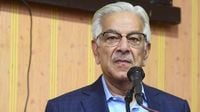In a striking admission, Pakistan's Defence Minister Khawaja Asif declared on May 9, 2025, that students from madrassas could be mobilized as a "second line of defence" amid escalating tensions with India. Speaking in the National Assembly, Asif stated, "Students in madrassas will be used for security if the situation arises," a comment that has sparked global outrage and raised serious concerns about the potential exploitation and radicalization of children in conflict.
Asif's remarks came during a turbulent time marked by heightened military tensions between Pakistan and India. Just days earlier, on May 7, the Indian Armed Forces launched 'Operation Sindoor,' targeting nine terror sites in Pakistan and Pakistan-occupied Kashmir in response to a deadly terrorist attack in Pahalgam that claimed 26 lives on April 22. Wing Commander Vyomika Singh confirmed that the operation was conducted with precision to avoid civilian casualties.
In a separate interview, Asif stated that Pakistan had "no option left other than a full-blown war" in light of what he described as India's increasingly aggressive posture. "We don’t have any other options other than this... We have to pay them back in the same coin," he said, further asserting that there should be no doubt that war was imminent. His comments reflect a significant escalation in rhetoric, with Asif emphasizing that the chances of de-escalation were minimal.
Despite these aggressive statements, Asif had previously indicated that Pakistan was attempting to avoid a full-blown conflict. On May 7, he noted, "There is a possibility of expansion of this conflict into a full-fledged war, which we are trying to avoid." This contradiction in messaging highlights the precarious situation in the region.
Asif also faced scrutiny for his claims regarding the downing of Indian jets. In a CNN interview, he attributed Pakistan's assertion of having shot down five Indian fighter jets to evidence circulating on social media. When pressed for concrete proof, he replied, "It’s all over the social media, on Indian social media, not on our social media. The debris of these jets fell into Kashmir. And it’s all over Indian media today and they have admitted." This statement drew skepticism, particularly as he could not specify the aircraft used by Pakistani forces in the supposed engagement.
In another controversial statement, Asif admitted that Pakistan has been funding and supporting terrorist groups for decades. In a viral video clip from an earlier interview, he told Sky News, "We have been doing this dirty work for the United States for about 3 decades... and the west, including Britain... That was a mistake, and we suffered for that." This admission lays bare Pakistan's long-standing involvement with militant organizations, complicating its international relations.
As tensions continue to rise, the Pakistani military has also indicated that it would not de-escalate following recent Indian airstrikes. Military spokesperson Ahmed Sharif Chaudhry stated, "We will not de-escalate — with the damages India did on our side, they should take a hit." He emphasized that while Pakistan has been on the defensive, it would respond in its own time.
On the operational front, Pakistan's military attempted a series of drone strikes targeting Indian military establishments, launching 300 to 400 Turkish SONGAR drones in a brazen attack. However, Indian forces successfully intercepted many of these drones, mitigating potential damage to their infrastructure.
The escalating conflict has prompted widespread concern among international observers. Asif's comments about mobilizing madrassa students for military purposes have drawn criticism from human rights advocates, who warn of the dangers of radicalizing children in the name of national defense. This alarming trend raises questions about the future of youth in conflict zones and the ethical implications of using children in military operations.
As the situation unfolds, both nations remain on high alert, with military readiness at the forefront of their strategies. The Indian government has reiterated its commitment to national security, while Pakistan grapples with the implications of its military rhetoric and actions.
In conclusion, the current state of affairs between India and Pakistan reflects a volatile mix of military posturing, political rhetoric, and the potential for conflict that could have dire consequences for the region. As both nations navigate this precarious situation, the international community watches closely, hoping for a resolution that prioritizes peace and stability over further escalation.




